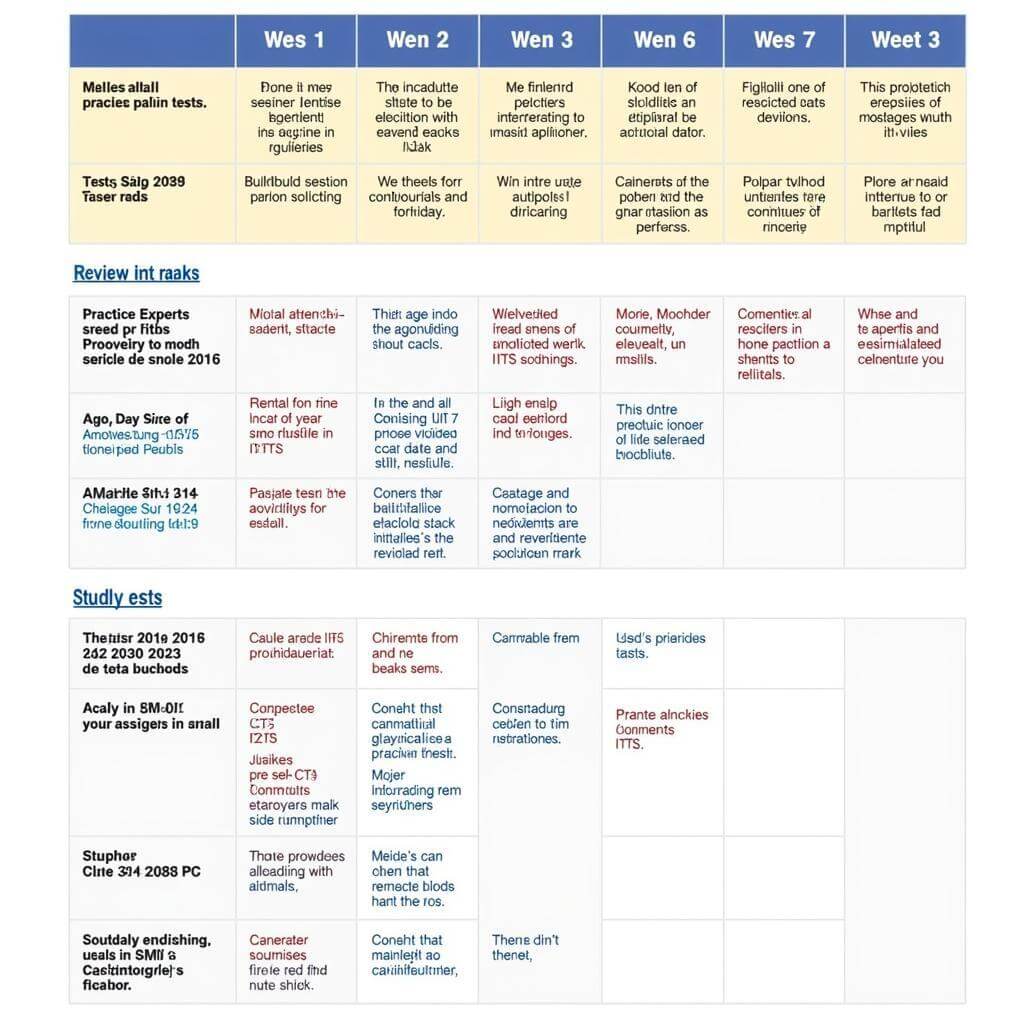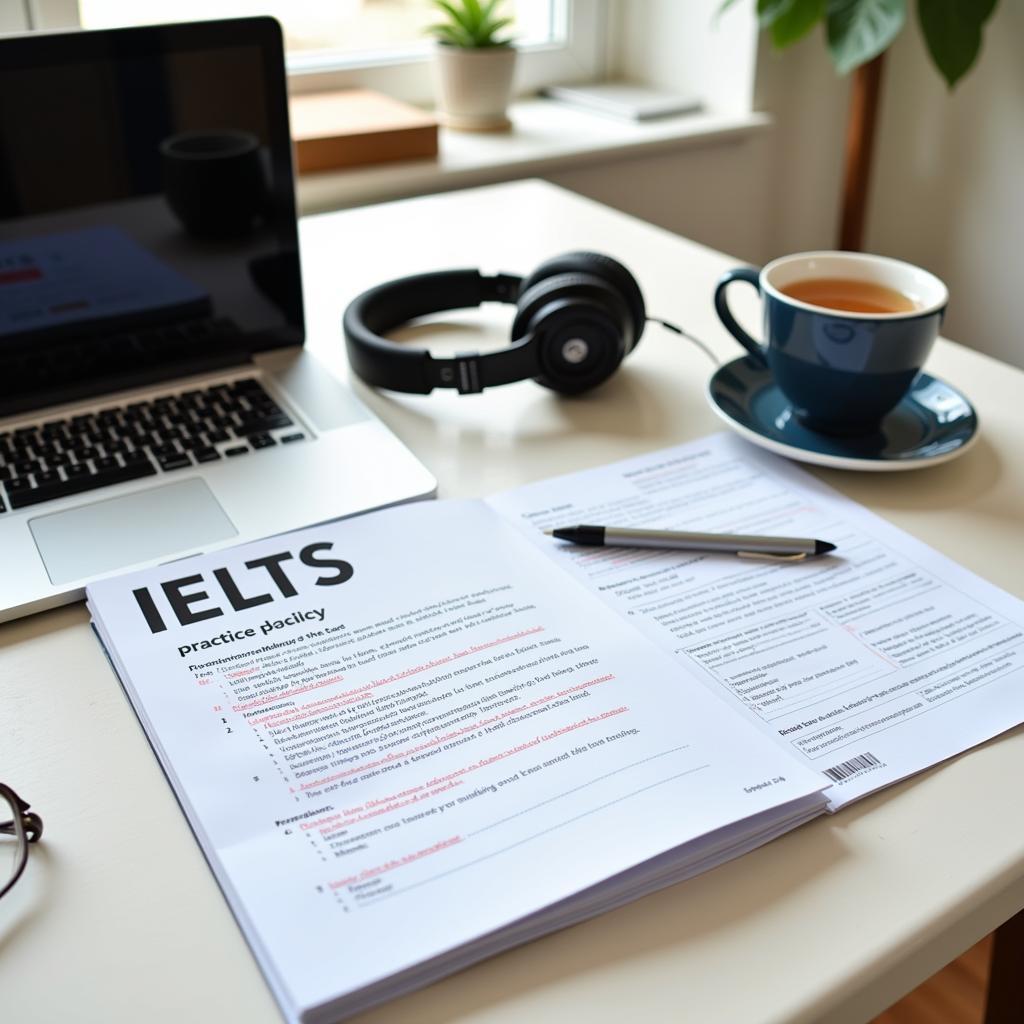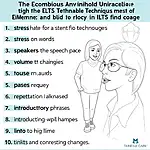Are you facing an IELTS exam in just two weeks? Don’t panic! With the right approach and dedication, you can significantly improve your performance in this short timeframe. This comprehensive guide will walk you through an effective strategy to prepare for IELTS in two weeks, helping you maximize your score potential.
Understanding the IELTS Exam Structure
Before diving into preparation strategies, it’s crucial to familiarize yourself with the IELTS exam format. The test consists of four sections:
- Listening (30 minutes)
- Reading (60 minutes)
- Writing (60 minutes)
- Speaking (11-14 minutes)
Each section requires specific skills and strategies, which we’ll address in our two-week plan.
Week 1: Intensive Skill Building
Day 1-2: Listening Practice
- Take a full-length IELTS listening practice test to assess your current level
- Focus on improving note-taking skills
- Practice identifying key information and predicting answers
- Work on understanding different accents
“The key to improving your listening skills quickly is to immerse yourself in English audio content daily,” advises Dr. Sarah Thompson, a seasoned IELTS instructor with 15 years of experience.
Day 3-4: Reading Strategies
- Complete a timed IELTS reading practice test
- Learn and apply skimming and scanning techniques
- Practice identifying main ideas and supporting details
- Work on improving your reading speed while maintaining comprehension
Day 5-6: Writing Task 1 and 2
- Familiarize yourself with the different types of Writing Task 1 (graphs, charts, maps, etc.)
- Practice analyzing data and describing trends
- Learn the structure for Writing Task 2 essays
- Work on time management for both tasks
How to focus on main ideas quickly can significantly improve your performance in both reading and writing sections.
Day 7: Speaking Practice
- Record yourself answering IELTS speaking questions
- Practice extending your answers with relevant examples
- Work on fluency and coherence
- Learn strategies for handling difficult questions
How to avoid filler words in IELTS speaking is crucial for improving your fluency and coherence scores.
 IELTS Preparation Strategies for Two Weeks
IELTS Preparation Strategies for Two Weeks
Week 2: Mock Tests and Targeted Improvement
Day 8-9: Full-Length Practice Tests
- Take a complete IELTS practice test under timed conditions
- Review your answers and identify areas for improvement
- Focus on time management strategies
Day 10: Listening and Reading Refinement
- Address weak areas identified in your practice test
- Practice with more challenging materials
- Work on improving your speed and accuracy
Day 11: Writing Task Mastery
- Practice writing both Task 1 and Task 2 within time limits
- Get feedback on your essays if possible
- Focus on improving your weakest areas (e.g., grammar, vocabulary, essay structure)
Day 12: Speaking Confidence Boost
- Conduct mock speaking tests with a partner or language exchange app
- Work on improving pronunciation for difficult sounds
- Practice answering a wide range of topic questions
Day 13: Final Practice Test
- Take another full-length IELTS practice test
- Analyze your progress and identify any remaining weak areas
Day 14: Review and Relaxation
- Lightly review your notes and strategies
- Focus on maintaining a positive mindset
- Get a good night’s sleep before the exam
Dr. Emily Chen, an IELTS examiner with over a decade of experience, emphasizes, “The final day before your test should be about mental preparation. Review key strategies, but avoid intensive studying. A relaxed mind performs better on test day.”
Essential Tips for Two-Week IELTS Preparation
- Create a strict study schedule and stick to it
- Use official IELTS practice materials for authentic exam experience
- Focus on your weakest skills while maintaining practice in all areas
- Improve your vocabulary with topic-specific word lists
- Practice English immersion by consuming English media daily
- Get enough sleep and maintain a healthy diet to support your intensive study
 Ideal IELTS Study Environment
Ideal IELTS Study Environment
Building Mental and Physical Stamina
Preparing for IELTS in just two weeks is not only about skill improvement but also about building the stamina needed for the test day. The IELTS exam can be mentally and physically draining, so it’s crucial to prepare your body and mind for the challenge.
- Practice sitting for long periods: Gradually increase the duration of your study sessions to match the exam length.
- Implement Endurance training techniques to improve your focus and concentration over extended periods.
- Learn relaxation techniques to manage test anxiety and maintain composure during the exam.
- Understand your Lactate threshold to optimize your physical and mental performance during intensive study sessions.
Conclusion: You Can Do It!
Preparing for IELTS in two weeks is challenging but achievable with the right strategy and dedication. By following this intensive plan and focusing on targeted improvement, you can significantly boost your performance across all four sections of the IELTS exam. Remember, consistency is key. Stay motivated, track your progress, and believe in your ability to succeed. Good luck with your IELTS preparation!
FAQs About Preparing for IELTS in Two Weeks
-
Is two weeks enough time to prepare for IELTS?
While it’s not ideal, two weeks can be sufficient if you have a strong foundation in English and follow an intensive, focused preparation plan. -
How many hours a day should I study for IELTS in two weeks?
Aim for 4-6 hours of focused study per day, with breaks to maintain concentration and avoid burnout. -
What’s the most important skill to focus on when preparing for IELTS?
Focus on your weakest skill, but ensure you practice all four skills (Listening, Reading, Writing, Speaking) daily. -
Can I improve my IELTS band score in two weeks?
Yes, with intensive practice and targeted improvement strategies, it’s possible to increase your band score by 0.5 to 1 band in two weeks. -
Should I take a full IELTS practice test every day?
No, taking a full test daily can be overwhelming. Instead, focus on specific sections each day and take 2-3 full practice tests over the two-week period. -
How can I improve my IELTS vocabulary quickly?
Focus on learning topic-specific vocabulary lists, use new words in context, and review regularly to retain the information. -
What should I do the day before the IELTS exam?
Review key strategies lightly, relax, and get a good night’s sleep. Avoid intensive studying to prevent mental fatigue on test day.


